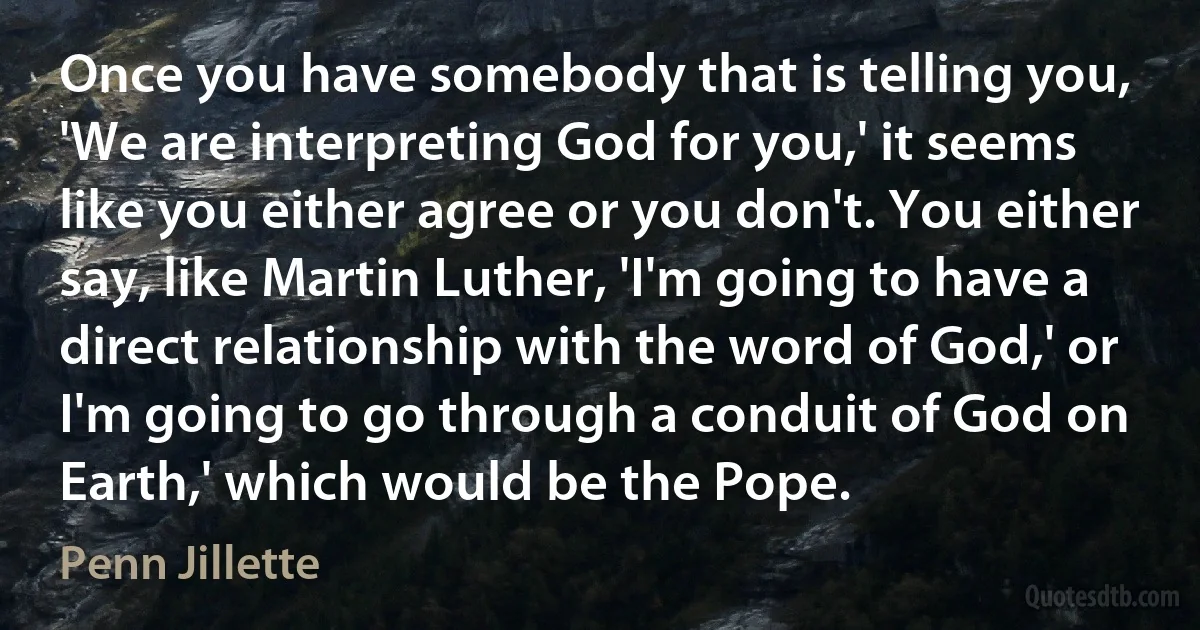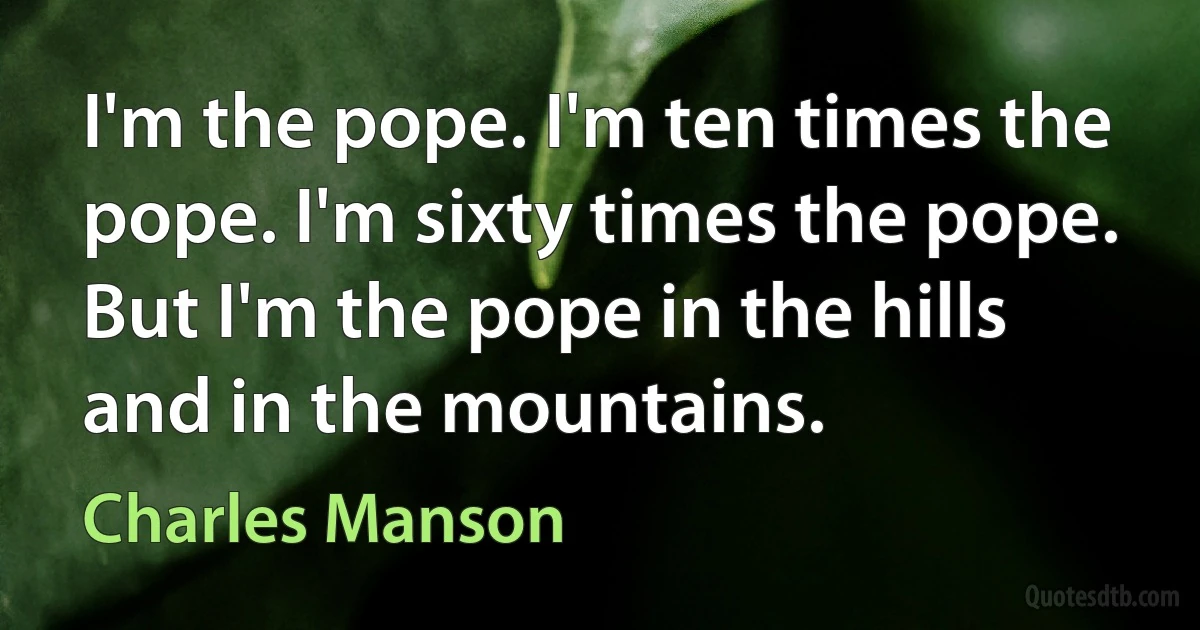Pope Quotes - page 9
No man - prince, peasant, pope, - has all the light, who says else is a mountebank. I claim no private lien on truth, only a liberty to seek it, prove it in debate, and to be wrong a thousand times to reach a single rightness. It is that liberty they fear. They want us to be driven to God like sheep, not running to him like lovers, shouting joy!"

Morris West
And that is all the Pope is saying to another human being. God made you the way you are, and loves you for it, and wants you to be happy as yourself. How much agony and pain has there been across so many centuries because we could not open our hearts to this truth? It is so strange to me how so many nonbelievers can see in this Pope's interaction with others the spirit of Jesus, and how so many of the most devout seem terrified by it.

Andrew Sullivan
Napoleon, far more Italian than French, Italian by race, by instinct, imagination, and souvenir, considers in his plan the future of Italy, and, on casting up the final accounts of his reign, we find that the net profit is for Italy and the net loss is for France. Since Theodoric and the Lombard kings, the Pope, in preserving his temporal sovereignty and spiritual omnipotence, has maintained the sub-divisions of Italy; let this obstacle be removed and Italy will once more become a nation. Napoleon prepares the way, and constitutes it beforehand by restoring the Pope to his primitive condition, by withdrawing from him his temporal sovereignty and limiting his spiritual omnipotence, by reducing him to the position of managing director of Catholic consciences and head minister of the principal cult authorized in the empire.

Napoleon Bonaparte
Ed walked away from the program feeling fortified and stapled. His brain was buzzing, the way it always did just after Jeopardy! He loaded up the microbus with Atlases and poseidons and headed for Pope County. "I've had it," he sang. "I've had it with puns, alliteration, Russian literature, Italian neorealism, meaningless cross-references, and laundry lists of nonsense. I shall drive without a license, without clothing, without direction, and if I make it to Arkansas, fine, and if I'm running late, if I'm running a numbers game, it doesn't matter, I shall keep on running. Yes, this is the answer. This is the ending. I shall keep on running, because a body in motion tends to stay emotional, and it's better to feel. Pain is better than emptiness, emptiness is better than nothing, and nothing is better than this."

John S. Hall
That is why individuals and peoples need a "healing of memories”. This does not mean that they have to forget past events. Rather, they have to learn to look at them in a new way. Instead of remaining prisoners of the past, they have to recover their freedom to forgive. As the pope says: "The deadly cycle of revenge must be replaced by the new-found liberty of forgiveness.”.

Kurien Kunnumpuram
Pope John Paul II is a tireless champion of peace who has dealt with the theme of peace often and at some length. Like his predecessors, John Paul II sees a close connection between justice and peace. John Paul II believes that justice is rooted in love and "finds its most significant expression in mercy”. Hence, justice, "if separated from merciful love, becomes cold and cutting.”.

Kurien Kunnumpuram
The discussion which was made by Luther, Melancthon, and the other persons who preceded the Reformation, opened the eyes or the public; and they got rid of the delusions which had been spread by the Pope of Rome, and emancipated mankind from the spiritual tyranny they were under, and brought about the establishment of that religion which we now enjoy in this country.

Lloyd Kenyon, 1st Baron Kenyon
Men glibly turn to an infallible Bible, or an infallible church, or an infallible Pope, or an infallible conscience, or an infallible Christ, and say that that authority is sufficient for them and enables them to accept truth. I believe all that kind of talk is false. It is false psychology or a failure of insight, and it is the fruit of mental laziness; a refusal to think things through. The most important convictions in religion cannot really be reached on the word of another. We can assent to propositions out of laziness of thought, or a desire to please, or an inability to argue, but one of the reasons why, in a crisis, men often feel let down by their religion is that they glibly assented to this or that, and falsely called their assent ‘belief.'

Leslie Weatherhead



